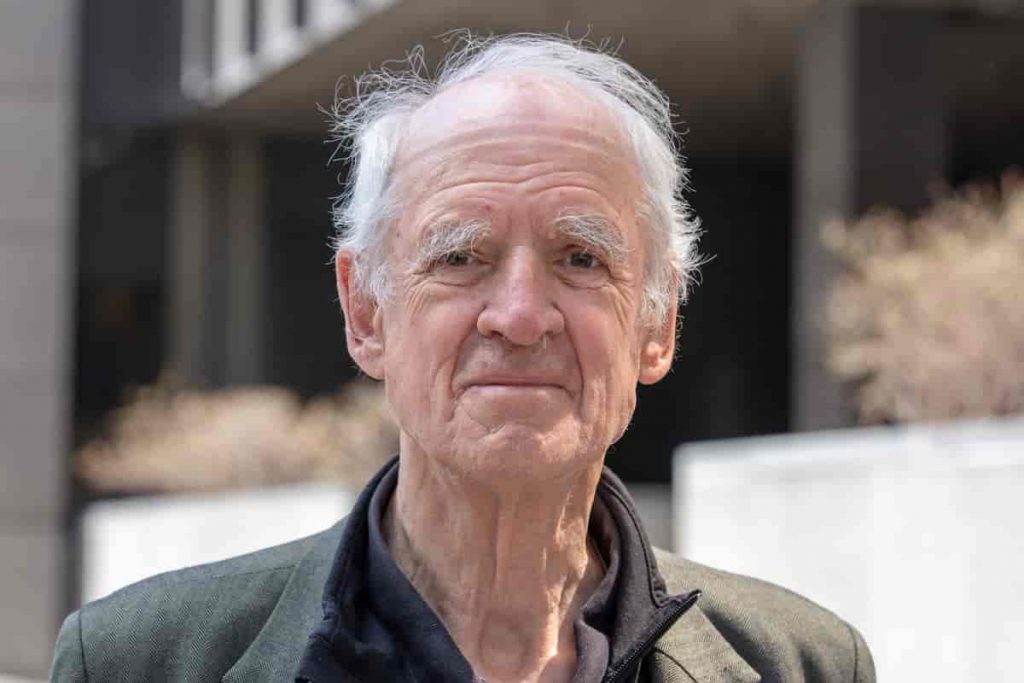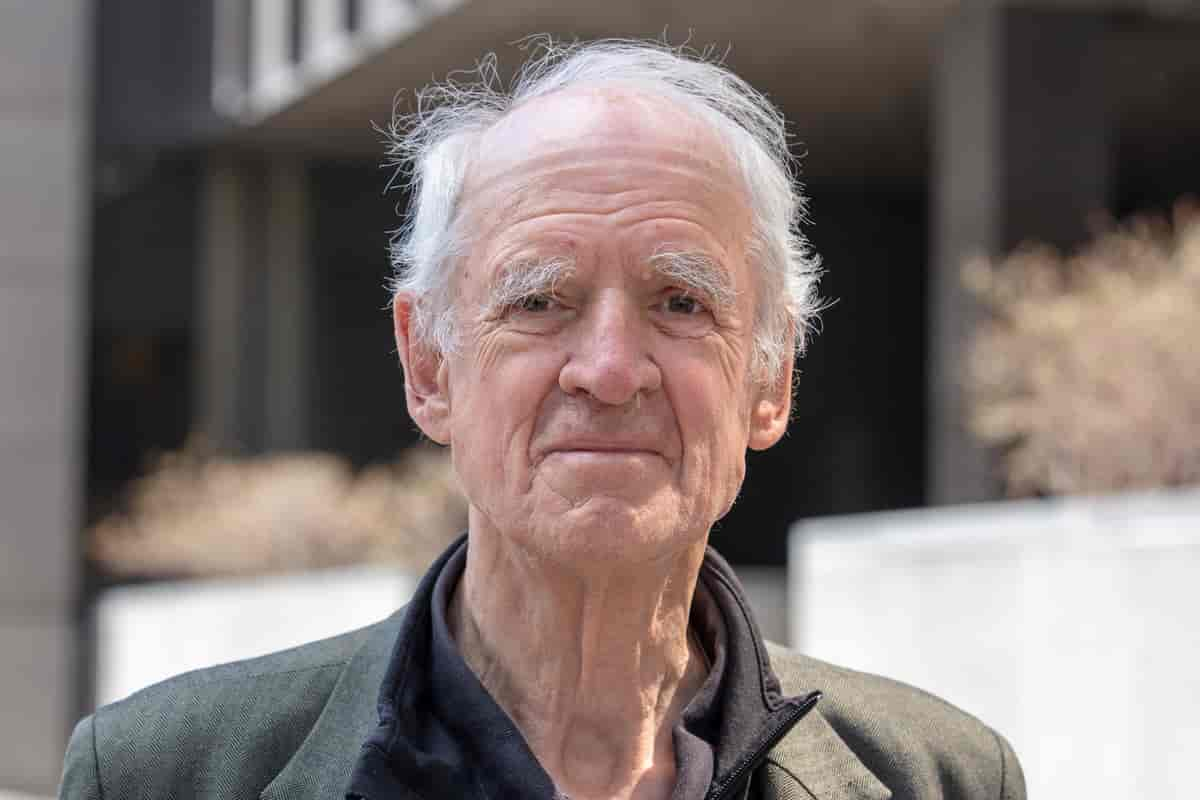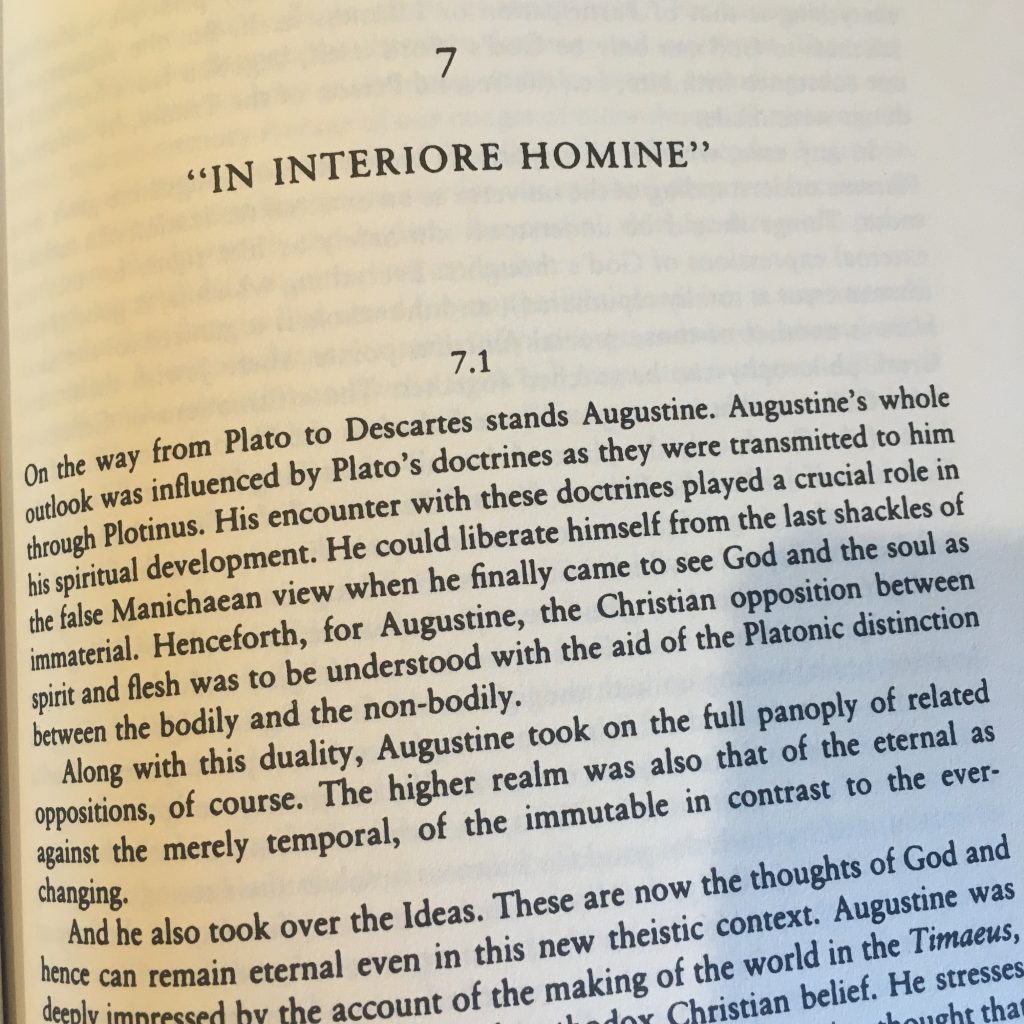In Sources of the Self, philosopher Charles Taylor traces the Western sense of the self as it evolved from Plato to Augustine and on to today. Taylor’s chapter on Augustine moved me deeply; I read it three times.
For Plato, the centre for moral growth is attention. Taylor writes: “Facing the right field is what is decisive. We may have to struggle to rise to this, but the struggle is over the direction of our gaze.” For Augustine, growth occurs through love: “Everyone becomes like what s/he loves.” For both Plato and Augustine, the direction of our attention and love is very important. For Augustine, however, “it is love and not attention which is the ultimately deciding factor.”
In a significant development for Western thought, Augustine connects Plato’s light metaphors with John’s Gospel. “The light of God is not just ‘out there’, illuminating the order of being, as it is for Plato; it is also an ‘inner’ light. It is the light ‘which gives light to everyone that comes into the world’ (John 1:9).” This inner light is in being present to oneself, where we discover the freedom to experience and love. In this inner light we meet God who is truth. Taylor’s humour proves helpful: “We don’t have to jostle each other to get a good look or shove people aside to touch it, truth can be enjoyed by all together.”

According to Taylor, Augustine makes “the language of inwardness” compelling. Inwardness is the primary site of relationship between human beings and God. “In [our] inner self-presence, self-love … and self-affirmation” we reveal ourselves as the image of God. Augustine’s doctrine on “the intimacy of self-presence” as hallowed has “far-reaching consequences for the whole of Western culture.”
We are healed from self-centredness when we acknowledge our dependence on God the creator “in the intimacy of our own presence to ourselves.” Augustine writes: “Do not go outward; return within yourself. In the inward [human] dwells truth.” Taylor notes that “the stress on … the inward path, is not only for the benefit of intellectuals trying to prove the existence of God; the very essence of Christian piety is to sense this dependence of my inmost being on God … Augustine is always calling us within [because] inward lies the road to God.”
Reading Charles Taylor on Augustine on the self, I pause to reflect. Throughout my life in the Christian, Catholic and Ignatian traditions, we have often stressed seeking God in others. Indeed, at our most other-focused, Christian people have promoted a “forget about self, think of others” attitude. This approach can carve out a smaller place for our personal agency. It can confine our freedom as persons.
The “turn to the self” pursued by Augustine demonstrates a “radical reflexivity” in Taylor’s view. We go to the roots of human life when we meet our very self and reflect. Understanding personal feelings, reactions, motives and actions opens an encounter with this self as deep, present and active. In seeking the truths within, we encounter God.
In reflecting on all this, our first task becomes clear: to meet, reverence and love God’s presence within oneself. As Jesus announces, “the kingdom of God is within/among you” (Luke 17:21). Within me, within you, among us.
Next, we can love God, other persons and the entire creation. Taylor editorialises on Augustine’s invitation: “When it comes to God, the right measure is to love without measure …”
Leave a Comment


